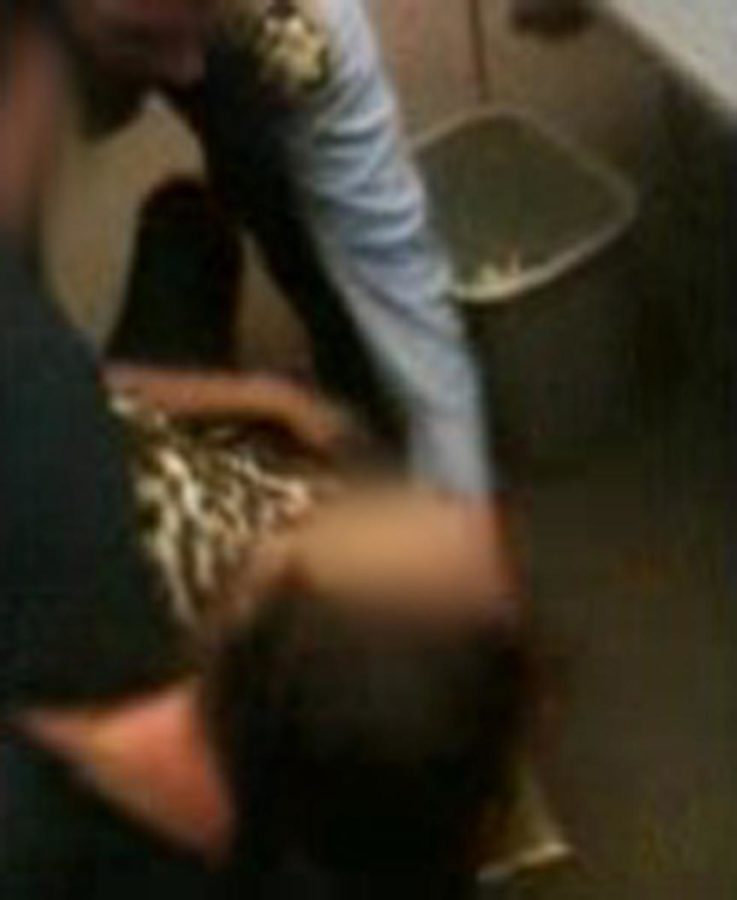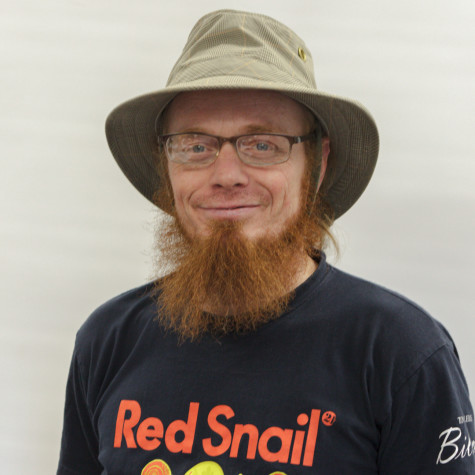Two years ago, before veteran Santa Rosa Junior College District Police officer Jeffrey Holzworth’s parking meter thefts came to light and before the current outsourced investigations of campus police, SRJC officials quietly dealt with another campus police controversy. It involved an inadequately supervised “wet lab” for cadets that went awry, leading to one cadet hospitalized with alcohol poisoning and senior officers in the department facing reprimands, according to an anonymous source with knowledge of the incident.
The Oak Leaf obtained a report compiled by Mark Paschal of San Francisco, who, according to the Bureau of Security and Investigative Services, does not have a license to conduct investigations. The report was produced at the request of school administrators after discovering the police were conducting their own investigation into serious misconduct charges and violations of student safety at the hands of senior officers, all of whom are still at the department. The report’s findings are available online at www.theoakleafnews.com.
Paschal claimed to be a private investigator when contacted by phone. When asked how he is able to investigate without a license, Paschal said during the wet lab inquiry he worked under a licensed investigator. “I assisted,” he said. He refused to identify the employer with a license. “If we should be subpoenaed or something like that we would definitely comply with that information, but only under a subpoena,” he said.
When Paschal conducted the investigation into the wet lab incident, Lisa Holmes, a licensed investigator, occasionally accompanied him. The law governing the licensing of private investigators forbids state-regulated investigators from either hiring unlicensed investigators to conduct investigations or being employed by unlicensed investigators for that purpose. Holmes would not return requests for information about Paschal.
The incident in question was a police cadet training exercise known as a wet lab held on April 14, 2012. Sergeants Robert Brownlee and Steven Potter originally planned the wet lab, which officers Joe Richards, Jeremy Jucutan and about 10 cadets attended, according to the report. Potter instructed three cadets to consume various amounts of alcohol on campus so the other cadets could study the effects of alcohol to better detect it during traffic stops. According to Potter’s testimony in the report, he instructed the cadets to drink enough to get intoxicated, but not to go above a 0.10 blood alcohol content.
According to the report, Potter said he instructed a cadet captain to purchase the alcohol and he would reimburse him. That cadet captain also supervised the three cadets who volunteered to drink for the exercise and kept a record of how much they drank. All three were over 21 years old. The cadets drank shots of tequila in the cadet station located near the campus parking structure. The supervising cadet had them drink a shot every 10 to 15 minutes from about 4 p.m. to 5:45 p.m. One of the female cadets reported she drank five shots of tequila while the other two drank seven shots.
SRJC doesn’t allow students or faculty to consume alcohol on campus. According to SRJC’s Health and Safety Policies page on its website, “In addition to being a violation of Federal and State laws, the possession and/or use of alcohol, the unlawful manufacture, distribution, dispensing, possession or use of illegal controlled substances on SRJC campuses, off-campus centers, workplace site of employees, or at any District-sponsored event is prohibited…Violators of this prohibition are subject to criminal prosecution and/or disciplinary action, including reprimand, probation, suspension or expulsion, and/or termination from employment.”
During Potter’s testimony, when asked for his understanding of alcohol consumption on campus, he replied, “I understand that it is against the law.”
The report states that no officers were present during the consumption of alcohol, so there was no way for Brownlee to know exactly how much alcohol the three cadets consumed. Further, Potter stated that he did not ask the three cadets about medications they might be taking or whether they had eaten, but did suggest they bring snacks.
During the unregulated consumption of alcohol, the three cadets became intoxicated. When they arrived at the training center at 6 p.m., witnesses described them as loud and obnoxious. Later the two female cadets vomited on the floor and in trashcans. One passed out and was unresponsive by the end of the training. According to the report, breathalyzer tests showed the cadet who was later hospitalized had a BAC of 0.159 percent, nearly twice the legal limit. The other female cadet blew 0.09 percent BAC while the male cadet was at 0.153 percent.
SRJC District Police officer Joe Richards was present during the wet lab training at the request of Brownlee, according to testimony given to Paschal and Holmes. At one point during the training, while a cadet was vomiting and passing out, Officer Richards made three cell phone videos, which he sent out to other senior police employees.
According to Potter’s testimony in the report, he received the videos from Richards accompanied by a text message with laughing emoticons. Potter responded to Richards with a text saying, “What the hell is happening?”
In the videos, while the cadets were vomiting and passing out, Brownlee can be heard continuing his lecture on field sobriety tests. Richards can be heard laughing and at one point calls a pile of vomit on the floor “a little evidence.” Brownlee and Richards both refused requests to respond to allegations that they mishandled the exercise.
The Oak Leaf has obtained the cellphone videos and posted them online at www.theoakleafnews.com, but blurred the faces of the cadets.
Brownlee stated that when he left after the training at 7:35 p.m. the cadet who was later hospitalized had her head over a trash can, but was not vomiting. He confirmed with other cadets that she had a ride home and someone to care for her.
According to the report, dispatcher Monica Chavez was being job-shadowed by Rhonda Gowa, an employee of the Sonoma County Coroner’s office and an EMT. After another cadet alerted her to the condition of one of the intoxicated cadets, Gowa and Chavez examined her, determined her breathing was labored and suggested she needed immediate medical attention. Chavez called for an ambulance. According to Chavez’s interview in the report, no sworn officer was in the building at the time.
The SRJC police academy in Windsor does not conduct wet lab training, but some police departments in the state do. According to a December 2012 report by ABC affiliate KRCR in Redding, California, the Redding Police department gives wet lab demonstrations to local media. During the demonstrations, members of the media who have volunteered are given alcoholic drinks and breathalyzer tests to determine how close to the legal limit for driving they are.
According to statements he gave to investigators, Brownlee did not alert the chain of command about the plans for the exercise. The chain of command at the time included interim Police Chief Joe Palla and Lt. Dave Willat.
Palla and Willat did not respond to requests for information about the wet lab or its investigation. According to the source with knowledge of the entire affair, Palla asked Willat at the time to investigate the matter when it came to his attention that things had gone wrong with the training. According to the Bureau of Security and Investigative Services, Willat is a licensed investigator. But when he began his investigation, the college quickly decided to hire an outside party to investigate.
It is unclear whether the findings of the report influenced any changes in policies in the department’s handling of training the short-term non-continuing cadets. Administrators have not responded to Oak Leaf questions and requests for information about the incident and its aftermath.
Matt McCaffrey, current police chief who was not chief at the time of the wet lab incident, is the public information officer for District Police. He did not respond to requests for information about the incident or questions about whether wet labs are still conducted during training. In November, McCaffrey sent an email to all district police employees warning them against making statements to the press under threat of reprimands “including termination.”
The Oak Leaf has filed a Freedom of Information Act request with the college in accordance with the California Public Records Act to determine the scope of the school’s involvement. The CPRA gives the school 10 days to respond to the request and produce any releasable documents. Twenty-eight days after the Oak Leaf’s request, Attorney Patrick Wilson, who represents the school, responded by email saying he needs another week to review all of the documents.
As more information becomes available about this incident and subsequent fallout, The Oak Leaf will report on it.
Below is the video and the report mentioned in the article.





Adele Layton • Jan 2, 2015 at 4:04 pm
I think it’s wonderful that the Oak Leaf is reporting such controversial issues. Isn’t that what journalism is all about? Excellent investigative reporting. Well done, JoshOne Barnes.
Elainey Joyce • Dec 8, 2014 at 9:53 pm
They should all be fired!!! There should be a grand jury indictment of this corrupt police department!